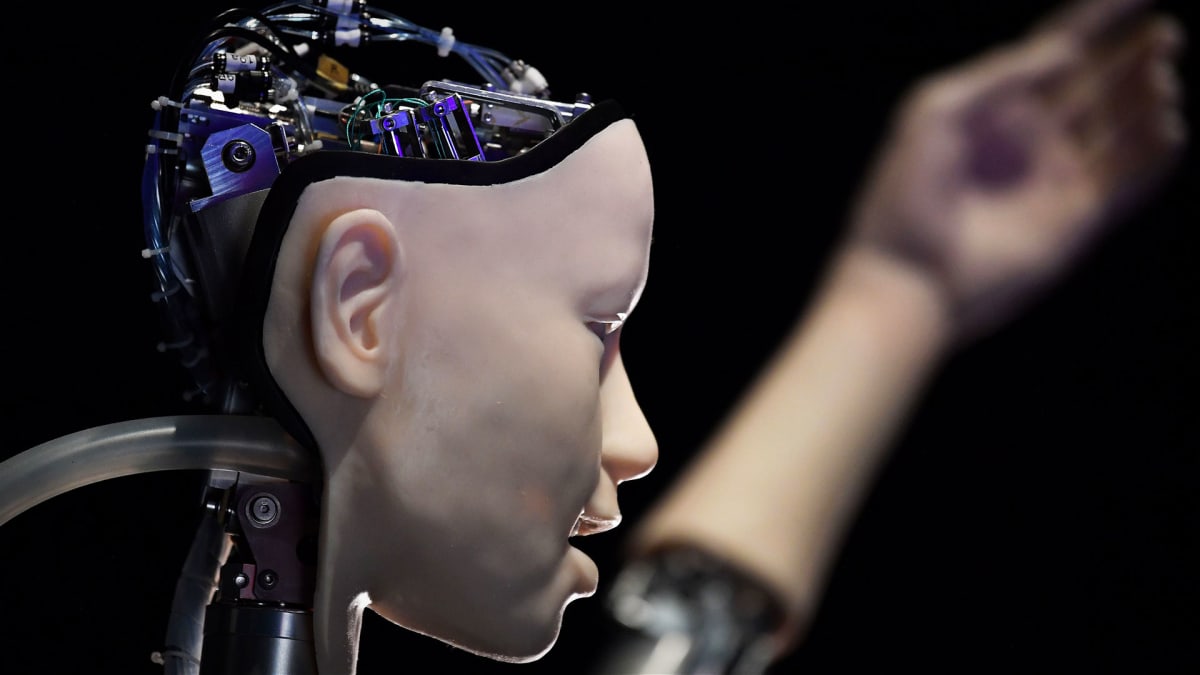
Few hedge fund managers share their thoughts in real time, and fewer still have 50 years of experience navigating the markets. Hedge fund manager Doug Kass is one of them.
Kass, who offers his stock picks and insights in his Real Money Pro Daily Diary, doesn’t pull any punches when it comes to managing risk. He recently told investors interested in artificial intelligence that the road to AI profits will likely be rockier than expected for the likes of Nvidia (NVDA), Microsoft (MSFT), Alphabet (GOOGL), and C3.ai (AI).
What Is Artificial Intelligence?
Artificial intelligence, or AI, is a rapidly evolving field involving the development of computer systems that can think, learn, and problem-solve like humans.
In simple terms, AI enables computers to perform tasks that typically require human intelligence. Imagine machines that can understand speech, make decisions, recognize images, translate languages, and more.
AI encompasses various subfields, such as machine learning, natural language processing, computer vision, robotics, and expert systems. Machine learning – a critical aspect of AI – uses algorithms to analyze vast amounts of data, identify patterns, and make predictions or take actions based on that analysis.
The applications of AI are vast across many industries. For example, AI is making significant strides in automating repetitive tasks, enhancing decision-making, and unlocking new possibilities, like enabling autonomous systems.

A Frenzy in AI Stocks
AI’s potential has been known for years. However, Main Street investors’ interest in AI stocks really took off after OpenAI released its ChatGPT to the masses at the end of November.
ChatGPT is a large language model, an online computer program that can answer complex questions, make personalized recommendations, generate content, teach subject matter, and retrieve information. Its functionality resulted in more than 100 million daily active users in January, only weeks after its launch, making it the fastest-growing consumer application in history, according to UBS.
The successful launch increased ChatGPT and similar LLMs' likelihood of disrupting the $300 billion search market. Microsoft’s decision to embed ChatGPT into its search engine, Bing, to chip away at Google’s dominance in traditional online search further fueled speculation of AI’s ability to shake up other large markets, kickstarting interest in AI stocks.
For example, shares of Nvidia, best-known for graphics chips used in gaming and cryptocurrency, have rocketed on expectations of higher demand for high-speed chips and software used to train AI models. Its shares have more than doubled (up 106%) year-to-date.
C3.ai, a company that builds AI applications for companies, has also seen its shares boom, climbing 140% this year, despite the fact that it’s losing money and revenue shrank 4% year-over-year last quarter.
The frenzy has also contributed to significant gains for large technology companies like Microsoft, Alphabet, and Apple (AAPL), all of which will presumably be able to leverage the benefits of AI to embed themselves even more deeply with their users. For example, Alphabet responded to Microsoft’s incorporating ChatGPT into its browser by launching its own large language model, Bard.
A Warning to AI Investors
The embrace of large-cap technology companies starkly contrasts with what’s been happening among other stocks. Big-cap technology stocks account for nearly one-third of the S&P 500, so the AI-inspired rally in FAANG stocks has enabled the index to climb despite weakness elsewhere. This narrowness has led longtime investors, including Kass, to worry that investors are chasing AI stocks without fully understanding the pitfalls.
Kass writes:
I marvel at how confident and flippant so many "talking heads" are about the likely application and road to the profitability of artificial intelligence adoption - without any real understanding of the subject and with knowledge bases miles long but only inches deep. This is nothing new - for some reason, market mavens are comfortable answering any question on any subject, despite the lack of depth of knowledge.
There is no better example than the subject of artificial intelligence - which has lifted the Nasdaq, in general, and many of its largest constituents (e.g., Microsoft, Meta (META) , Apple, Nvidia, etc.) to levels that may not be justified by the possible reality of AI adoption.”
Kass spoke to leaders at more than a dozen companies to better understand the reality of the timing for the widespread adoption of AI. The conversations overwhelmingly tilted toward concerns about AI’s power and potential for abuse, leading most to concede that AI could be more heavily regulated than many think.
Kass summed up the impact of potential regulation bluntly, writing:
The threat of misinformation - with broad consequences - is a constant fear in the minds of the company managements I interviewed…And so is the fear, on the part of my company contacts, that our politicians - as contrasted to the rapidity of AI innovation - are slow-moving and could easily screw up/adversely influence AI penetration through their likely governance surveillance, recommendations, and oversight…Perhaps making matters worse could be the need for international oversight - complicating an already tangled issue of governance.
Given that AI may drive productivity in ways that significantly affect a broad swath of our voting population and the potential for AI to be abused in ways that promote misinformation, regulation isn’t bad. Often, regulation is necessary. However, creating regulatory guardrails will likely mean a longer wait for AI to boost corporate profits.
The deepest-pocketed and most politically connected companies, such as the large-cap stocks mentioned above, will likely weather the risk of regulatory oversight best. It could be a struggle for smaller companies, particularly those still losing money like C3.
Of course, this doesn’t necessarily mean these stocks can’t go higher. Stocks often rally or fall more than expected. It simply means that these stocks may pull back sharply at some point if AI hits speed bumps.
In short, AI stocks may already be priced to perfection. Those who realize AI stocks aren’t immune to the risks witnessed in past bubbles will be best prepared to protect their gains and limit their losses.







